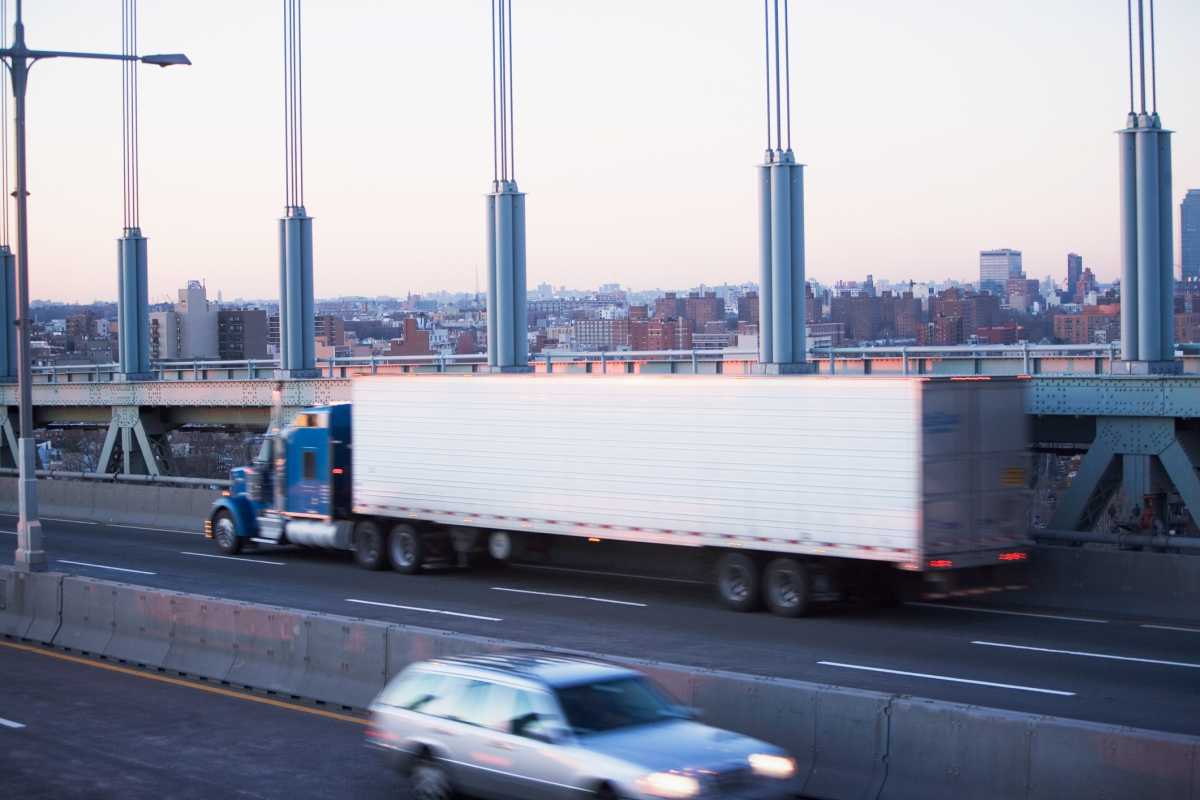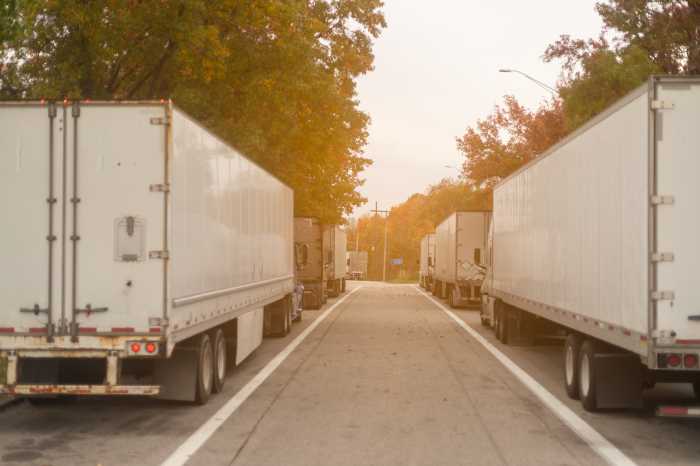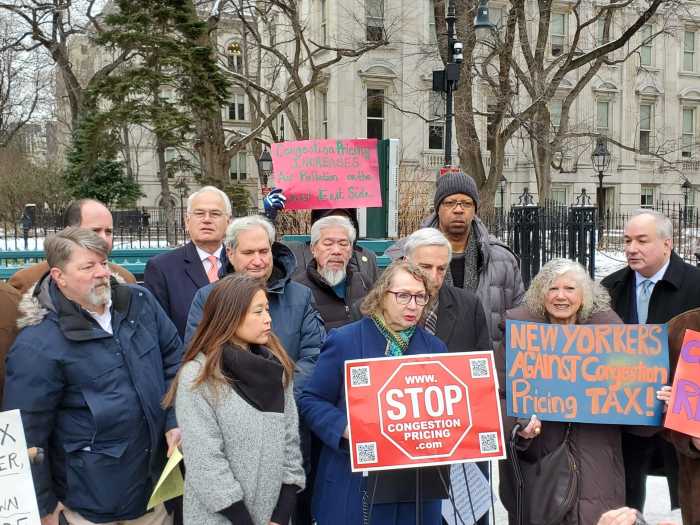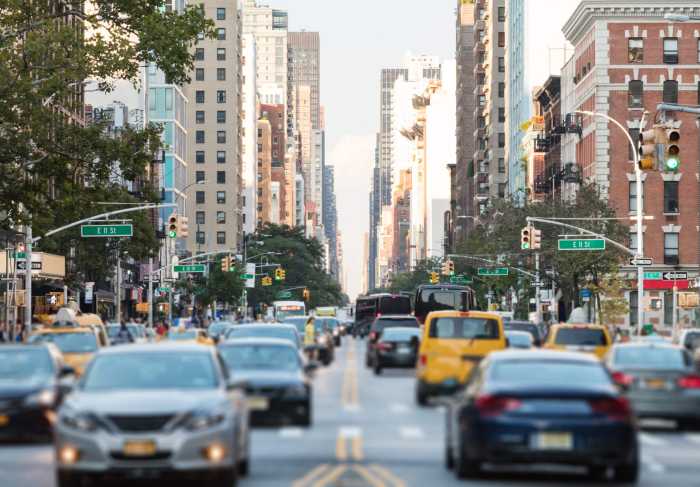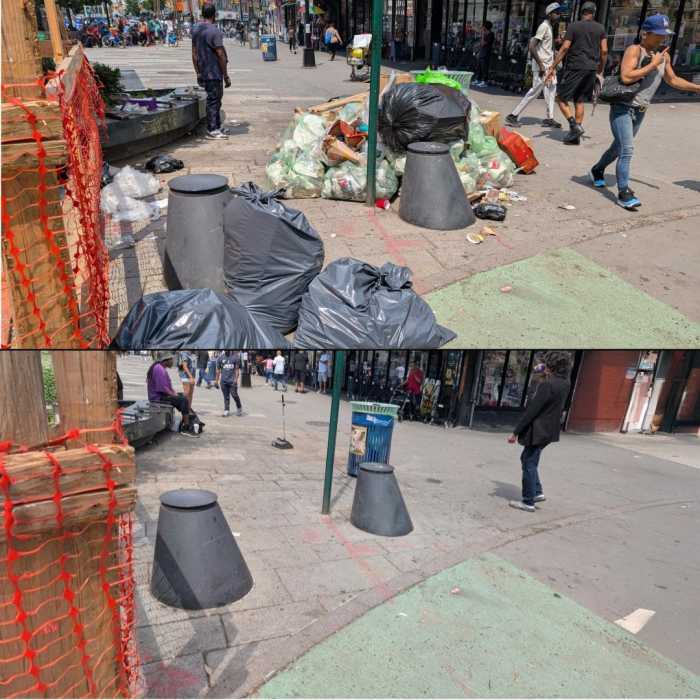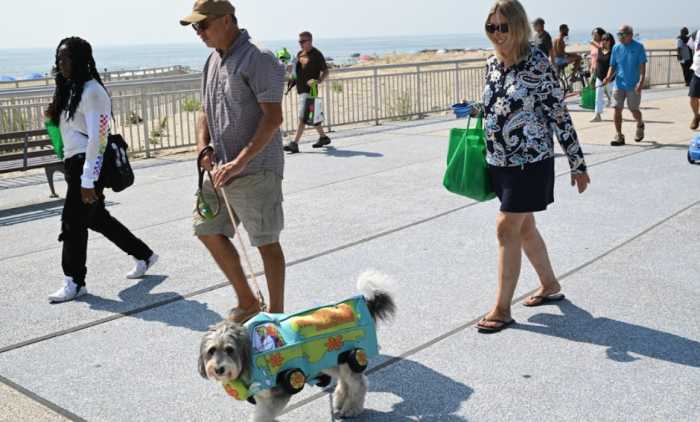New York City’s truckers are the latest group to go to court seeking to stop congestion pricing — claiming tolls of up to $36 to enter Manhattan are “discriminatory” just a month ahead of the policy’s long-awaited rollout.
The Trucking Association of New York (TANY) filed their lawsuit to stop the program in Manhattan federal court on Thursday, contending that the MTA is charging higher tolls to trucks because the agency needs to raise $1 billion per year through the program, and knows trucking companies have “inelastic” schedules to deliver goods to clients.
“The trucking industry is essential to the economy of New York, specifically to New York City. Our members deliver medical supplies, fuel, groceries, construction materials, retail and restaurant supplies, and much, much more, every single day to keep the city running,” Kendra Hems, president of TANY, told reporters on Thursday. “Our members are particularly aggrieved by the MTA’s tolling structure, which is why we felt it necessary to take today’s action.”
The truckers join a large laundry list of individuals and groups seeking desperately to halt the tolling scheme before its scheduled June 30 start date.
The MTA and the Federal Highway Administration, which gave its blessing to the plan, are also facing lawsuits from New Jersey, the United Federation of Teachers and Staten Island’s Borough President, a group of conservative city lawmakers and Lower Manhattan residents, upstate Orange and Rockland Counties, and the town of Hempstead on Long Island.
The MTA declined to comment Thursday on the latest suit.
Under the program, most motorists will pay a $15 toll to enter Manhattan below 60th Street during peak hours, and only once per day. Truckers, however, will pay between $24 and $36, depending on their size, each time they enter the congestion zone, though with a “crossing credit” of between $6 and $20 if they enter through an already-tolled tunnel.
This forms the crux of the truckers’ complaint that they are being targeted unfairly, in a way they contend violates the US Constitution.
“The concern that we have is the trucking industry, who…has no choice but to go into the zone, is unfairly targeted by this plan,” said Hems. “Not only do we have no choice, but the MTA has implemented a structure that provides essentially a carve-out for passenger vehicles at a $15, once-a-day charge. Those drivers, by and large, have options to take transit or alternative forms of transportation into the zone. The trucking industry, on the other hand, is being charged $24 to $36 depending on the size of the truck, each and every single time they enter that zone.”
“It really creates an undue burden on the trucking industry,” Hems continued. “And that ultimately is going to trickle down in the form of increased costs to consumers as businesses will have no choice but to raise their prices to account for the increased rates that come from this plan.”
The MTA has noted that trucks can pay lower tolls by shifting delivery schedules to overnight hours, when tolls will be discounted by 75%. But TANY members say it’s not that easy.
“As any responsible business does, we deliver when our customers ask us to deliver, which is during prime business hours,’ said Joe Fitzpatrick, founder of Lighting Express Delivery and vice chair of TANY’s board. “That will not change now.”
TANY says it is seeking a preliminary injunction to stop congestion pricing in its tracks before it is set to begin, in a move attorney Brian Carr, a partner at Monaco Cooper Lamme & Carr, said would allow “sufficient time for all parties to present their respective arguments for the court’s consideration.”
Judges in the other cases — which focus more on the idea the feds and MTA allegedly violated environmental review laws — have said they intend to rule before the June 30 start date. The MTA has already installed all of its tolling gantries that will automatically levy tolls to motorists using license plate reading tech.
The MTA intends to raise $1 billion per year in toll revenue from the program, which TANY says is an incentive to “maximize revenue by targeting those with inelastic schedules, like trucks.”
The revenue will be bonded out to raise $15 billion for the MTA’s capital program, funding construction priorities like modernizing subway signals; making the subway accessible for people with disabilities; and keeping the aging system in a state of good repair. The uncertainty over the litigation has kept the MTA from awarding over $9 billion in construction contracts it intended to dole out this year.



